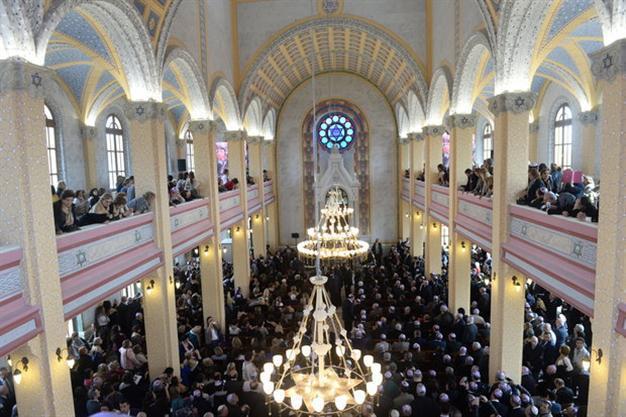80 percent of minorities in Turkey cannot express themselves openly: Survey

Eighty percent of minorities in Turkey say they cannot express themselves openly on social media, while 35 percent said they are subject to hate speech on the same platform, according to a recent survey conducted by a minority organization funded by the European Union.
Four-fifths of minorities with Greek, Armenian, Jewish and Syriac origins said they could not freely express their ideas on social media, according to the survey conducted by the Yeniköy Panayia Greek Orthodox Church, Bilgi University and the Konda pollster company.
The survey was conducted among 746 Turkish citizens who are members of the Greek, Armenian, Jewish and Syriac communities between Jan. 30 and April 17.
Only 20 percent of the respondents said they felt free to share their thoughts on social media, while the rest said they did not share their real opinions on social media due to fear and concerns. The respondents said the social media platforms they used most commonly were Facebook, YouTube and Instagram, respectively.
Some 86 percent of the minorities said they used their real name on social media accounts, while only 2 percent used a nickname. Twelve percent said they used both.
35 percent of minorities subject to hate speech
Over one-third of respondents also said they were subject to defamation, humiliation, obscenity or threats due to their minority identity on social media.
The survey revealed that, even though minorities cannot express themselves freely on social media, some 60 percent of minorities in Turkey believe that social media has enhanced their relationship with the rest of the society.
Out of the 746 respondents, 35 percent said they were Jewish, 27 percent said they were Armenian, 18 percent Syriac and 15 percent Greek.
Eighty percent also said Turkey needed legal measures that would penalize the violation of rights and discrimination on social media.
Professor Ulaş Karan, who compiled a report comparing and contrasting the differences in Turkish and European Union legal regulations regarding religious minorities and social media in Turkey as part of the project, said minorities were often exposed to hate speech on social media but that such acts were not subjected to prosecution.
“The definition of hate speech of the Council of Europe needs to be in our [Turkish] legislation,” said Karan.
Article 216 of the Turkish Penal Code interdicts those who instigate the public toward grudges and hostility, but the clause is not invoked when it comes to minorities, Karan said.
“This should also be implemented in hate speech against minorities,” Karan said.
 Eighty percent of minorities in Turkey say they cannot express themselves openly on social media, while 35 percent said they are subject to hate speech on the same platform, according to a recent survey conducted by a minority organization funded by the European Union.
Eighty percent of minorities in Turkey say they cannot express themselves openly on social media, while 35 percent said they are subject to hate speech on the same platform, according to a recent survey conducted by a minority organization funded by the European Union.